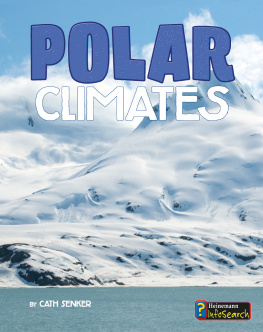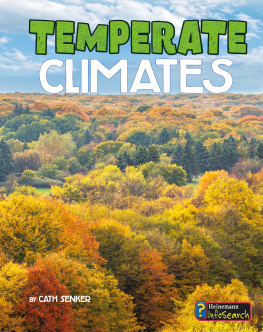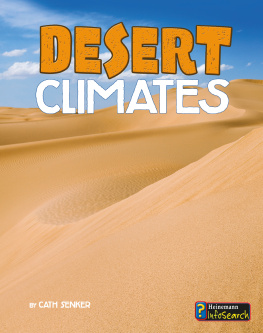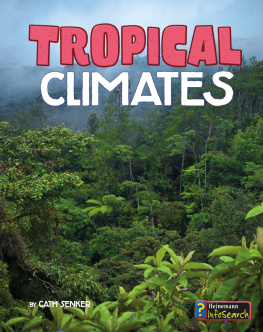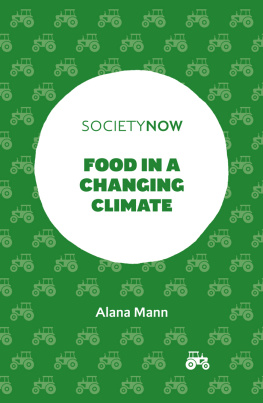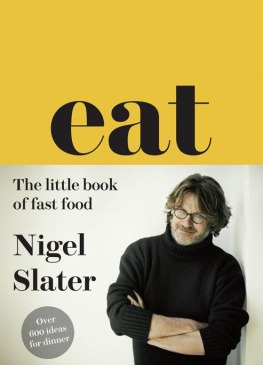Climate's Impact on Food Supplies
Strategies and Technologies for Climate-Defensive Food Production
AAAS Selected Symposia Series
Climate's Impact on Food Supplies
Strategies and Technologies for Climate-Defensive Food Production
Edited by
Lloyd E . Slater and Susan K . Levin
First published 1981 by Westview Press, Inc.
Published 2018 by Routledge
52 Vanderbilt Avenue, New York, NY 10017
2 Park Square, Milton Park, Abingdon, Oxon OX14 4RN
Routledge is an imprint of the Taylor & Francis Group, an informa business
Copyright 1981 by the American Association for the Advancement of Science
All rights reserved. No part of this book may be reprinted or reproduced or utilised in any form or by any electronic, mechanical, or other means, now known or hereafter invented, including photocopying and recording, or in any information storage or retrieval system, without permission in writing from the publishers.
Notice:
Product or corporate names may be trademarks or registered trademarks, and are used only for identification and explanation without intent to infringe.
Library of Congress Cataloging in Publication Data
Main entry under title:
Climate's impact on food supplies.
(AAAS selected symposium; 62)
Includes bibliographical references.
1. Crops and climate--Congresses. 2. Meteorology, Agricultural--Congresses. 3. Food supply--Congresses. 4. Agriculture--Congresses. I. Slater, Lloyd E. II. Levin, Susan K. III. Series.
S600.2.C56 338.1'9 81-753
ISBN 13: 978-0-367-01877-1 (hbk) AACR2
About the Book
Global concern about the impact of climatic variability on food supplies has been growing since 1963 when a major crop failure in the Soviet Union ended a long period of abundant, low-cost surplus grain. Since then a number of sizable crop shortfalls and food supply emergencies throughout the world have encouraged the study of climate-food interactions--a complex, undertaking. This book assesses theories of how climate influences food production and distribution, discusses how societies can contend with climate-induced food shortfalls, and explores policies and technologies that promise to reduce climate's impact on agriculture and to increase food production through unorthodox methods.
About the Series
The AAAS Selected Symposia Series was begun in 1977 to provide a means for more permanently recording and more widely disseminating some of the valuable material which is discussed at the AAAS Annual National Meetings, The volumes in this Series are based on symposia held at the Meetings which address topics of current and continuing significance, both within and among the sciences, and in the areas in which science and technology impact on public policy. The Series format is designed to provide for rapid dissemination of information, so the papers are not typeset but are reproduced directly from the camera-copy submitted by the authors. The papers are organized and edited by the symposium arrangers who then become the editors of the various volumes. Most papers published in this Series are original contributions which have not been previously published, although in some cases additional papers from other sources have been added by an editor to provide a more comprehensive view of a particular topic. Symposia may be reports of new research or reviews of established work, particularly work of an interdisciplinary nature, since the AAAS Annual Meetings typically embrace the full range of the sciences and their societal implications.
WILLIAM D. CAREY
Executive Officer
American Association for
the Advancement of Science
Contents
-- Walter Orr Roberts
-- F. Kenneth Hare
-- Stanley Ruttenberg
by Rolando v. Garcia
-- Roger R. Revelle
-- Martin E. Abel, John A. Schnittker, and Diane C. Brown
-- Martin E. Abel and Susan K. Levin
-- David P. Harmon, Jr.
-- Lloyd E. Slater
-- James D. McQuigg
-- Howard E. Warne
-- Norman J. Rosenberg
-- Carl N. Hodges
-- Lloyd E. Slater
Lloyd E. Slater is manager of the Food and Climate Forum, an activity of the Aspen Institute. The former editor and publisher of Food Engineering International and executive director of Puerto Rico's Institute on Social Technology, he has been directly involved with problems of developing countries and their food supplies. He is the author of numerous publications in food engineering, automatic control technology, and biomedical engineering.
Susan . Levin served as editor of the 1979 Food and Climate Review, an annual publication of the Aspen Institute's Food and Climate Forum. Formerly a documentary producer for public radio, she is a part-time farmer but continues to produce reports on food-related topics for radio and Colorado newspapers.
Martin E. Abel is senior viae president of Sahnittker Associates, a Washington, B.C.-based agricultural economies consulting firm. A specialist in agricultural policy, commodity analysis, and trade, he is the author of Reducing the Climatic Vulnerability of Food Supplies in Developing Countries: Public and Private Alternatives (report by Sahnittker Associates for the Aspen Institute, 1978).
Diane C. Brown is a senior associate for research at Schnittker Associates in Washington, D.C. Her emphasis has been on food supplies, developing countries, and international trade, and she has contributed papers to the President's Commission on World Hunger.
F. Kenneth Hare is professor of geography at the University of Toronto and provost of Trinity College. His specialties are climatology and desertification and he has published extensively in his field.
David P. Harmon, Jr., director of the Food Advisory Board, has focused his research on the future of agriculture. He is coeditor of Critical Food Issues of the Eighties (with M. Chou; Pergamon, 1979) and coauthor of World Food Prospects and Agriculture Potential (with M. Chou , H. Kahn, and. S. Wittwer; Praeger , 1977).
Carl . Hodges, director of the Environmental Research Laboratory at the University of Arizona, is investigating technologies to produce food in hostile environments. His work with salt-tolerant crops and controlled-environment aquaculture/crop systems has attracted worldwide attention.
James D. McQuigg is a consulting meteorologist for industry and government and private institutions. Formerly director of the NOAA/EDS Center for Climatic and Environmental Assessment, he has published widely on agrometeorology and climatology.
Roger R, Revelle, professor of science and public policy at the University of California at San Diego, was formerly director of the Harvard University Center for Population Studies. He has published numerous scientific articles in his fields of interest.
Walter Orr Roberts is director of the Aspen Institute for Humanistic Studies Program on Food, Climate and the World's Future. A solar astronomer, he was the first director of the National Center for Atmospheric Research. In recent years he has devoted much of his time to the problem of climate change and the interplay between climate and food; his most recent hook is The Climate Mandate (with H. Lansford; W.H. Freeman, 1979).


